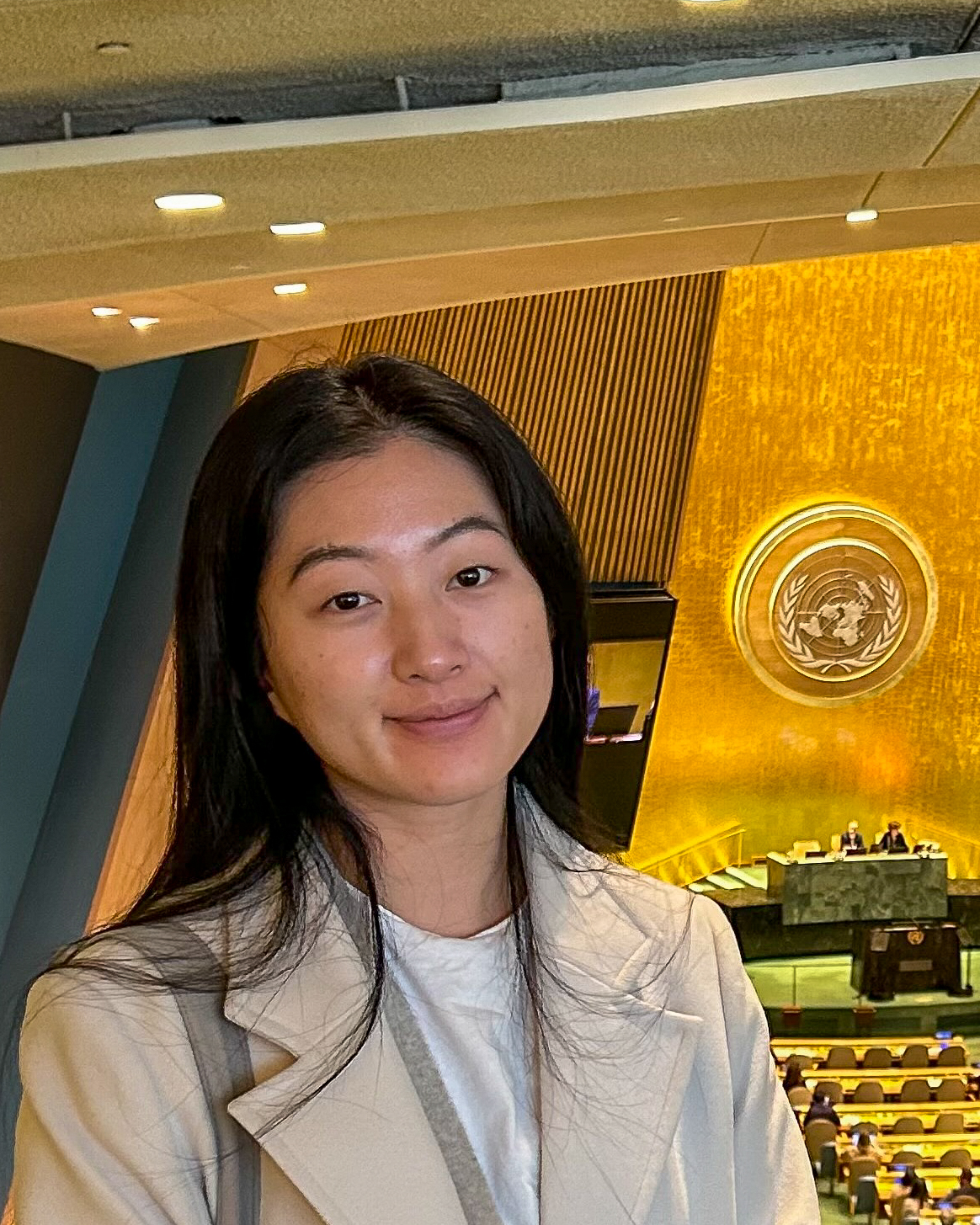

Lulu Wang
Lulu Wang (she/her) is in her final year studying Sociology and Economics.
Inspired by her personal work experience, Lulu’s honours thesis seeks to explore the impacts of a diplomatic upbringing on the children of foreign service officers, specifically examining how their mobile lifestyle influences their identity and worldview into adulthood.
During her free time, you can usually find her trying to learn new languages (with German being her newest addition), exploring hidden gems across the city, or scouting her next favourite matcha spot!
Foreign service officers (FSOs) play a pivotal role in representing their nations, fostering diplomatic relations, and addressing global challenges. However, the occupation involves a high degree of vocational mobility and dedication, often demanding significant personal sacrifices. This thesis explores the experiences of children of Canadian FSOs. Employing a qualitative methodology, the study draws on 14 semi-structured interviews and 3 focus group sessions with adult children of Canadian diplomats.
Using Bourdieu’s theory of habitus and Helson’s disconfirmed expectancy theory as theoretical lenses, the research findings provide insights into how frequent relocations, cultural exposure, and parents' diplomatic careers shape identity, relationships, and adaptability. Participants often described difficulties in forming stable peer relationships and navigating Canadian cultural norms. Yet, many also highlighted adaptive skills, expanded worldviews, and an articulated sense of national belonging as enduring strengths.
This work also enhances understanding of the challenges and opportunities faced by diplomatic families, offering practical implications for improving support systems, such as relocation assistance, family adjustment resources, and programs for children. By focusing on the children of Canadian FSOs, this study deepens our understanding of how international exposure shapes identity, interpersonal relationships, and life satisfaction. It addresses a critical gap in the sociological literature by examining how upbringing in diverse global contexts influences diplomatic children's perspectives on culture, national identity, and global citizenship.
How did you become interested in this topic? Why did you choose it for your thesis?
My interest stemmed from my co-op experiences with the Canadian and US governments. I got to connect with Foreign Service Officers (FSOs), but while their fascinating narratives showcased the challenges and rewards of diplomatic work, I noticed a recurring theme: the lives of their children were hardly discussed.
I wondered how their children perceived these experiences. This transient lifestyle of FSOs particularly impacts their children, who undoubtedly experience a unique upbringing. This prompts me to wonder whether these children share their parents’ sense of pride, or whether the demands of their parent(s)’ vocation pose challenges?
Can you summarize your project and its main findings for us?
My thesis investigates the experiences of Canadian diplomatic children. My findings reveal two main categories among diplomatic children as they enter adulthood: stability seekers and mobility embracers. Despite this differing orientation, both emphasized the importance of a strong Canadian identity as a grounding force. Their connection to Canada remained central to their sense of self.
Participants described their upbringing as privileged and emotionally complex. While they benefited from cultural exposure, adaptability, and access to international education, they also faced disrupted relationships, social isolation, and challenges reintegrating into Canadian life. Despite difficulties, all expressed gratitude for their uncommon yet enriching experiences.
What was your favourite part of doing research?
My favourite part was undoubtedly conducting participant interviews. Not only was the primary data gathered essential to my research analysis, but the stories shared by their children were captivating—similar to stories I heard from former colleagues, yet distinct in how events were experienced.
It was fulfilling to have gathered strong interest, and as a cherry on top, many expressed gratitude for this study. Participants shared that they felt seen, and happy that this overlooked topic was finally receiving attention. Even something as simple as having a participant look forward to my final research gave me motivation to give my best effort.
What have you learned during your research that has surprised you the most?
I had predictions for my results, but I did not expect that for many participants, the most difficult transition was not moving abroad. Rather, it is their return to Canada that was most difficult to adjust to.
Student transfers were normalized within international schools, but in contrast, local Canadian schools do not have the same resources. This contrast often created feelings of exclusion and a lack of belonging. These experiences of a mismatch in expectations highlight the reverse culture shock of how returning to Canada was not a seamless reintegration, but often a disorienting and isolating experience.
Why did you choose to study Sociology as a major? Why did you decide to apply into the honours program?
I’ve always been interested in how diverse groups of people interact and organize together. Every course I’ve taken has given me new perspectives, making Sociology the natural fit. Sociology is especially versatile, where I’ve found it complements my Economics background. I didn’t seriously consider Honours until around a year ago. It was through my work that I became curious about a question that eventually became my thesis. A conversation with a
faculty member—who would later become my supervisor—led to her expressing support if I pursued this idea. Her encouragement was pivotal, and I’m grateful for her support throughout Honours.
Do you have advice for other prospective Sociology honours students? What are your biggest takeaways from this research journey?
Even if you’re not considering academia (like me), Honours can be rewarding—especially if there’s a topic you’re keen on. Not only did this project foster academic growth, but it also helped clarify what kind of work I find meaningful. Choose a topic that excites you. Some days will feel overwhelming, but having a strong interest makes a difference. Also, don’t hesitate to reach out, I wish I’d done so more often.
Ultimately, the experience is what you make of it. A year goes by quickly, so be intentional with your goals. With the right mindset, it can be incredibly fulfilling!


